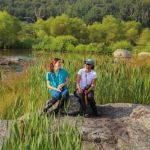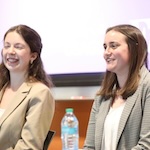
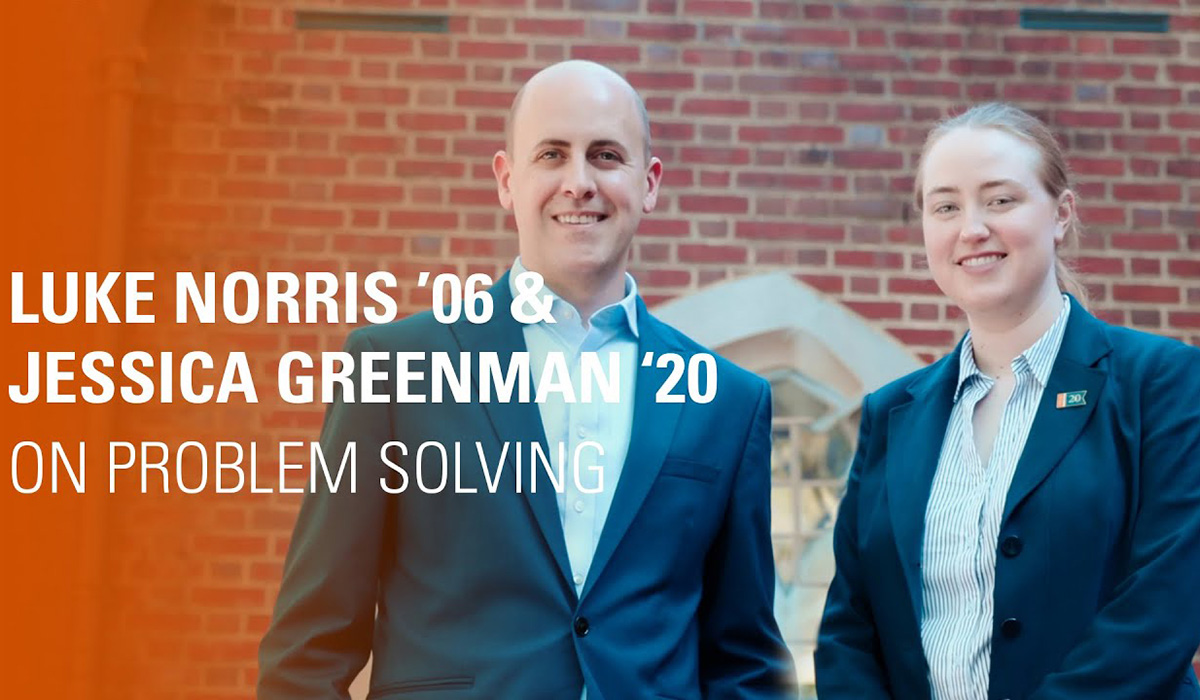
Consequential places invite us to reflect upon the past and envision the future. University of Richmond School of Law Associate Professor Luke Norris ’06 and J.D. program graduate Jessica Greenman ’20 continually reflect on the consequential education they received at Gettysburg College and how it has shaped their scholarship in and service to the law. With the problem-solving skills they developed at Gettysburg, they feel empowered to pursue a more just society every day.
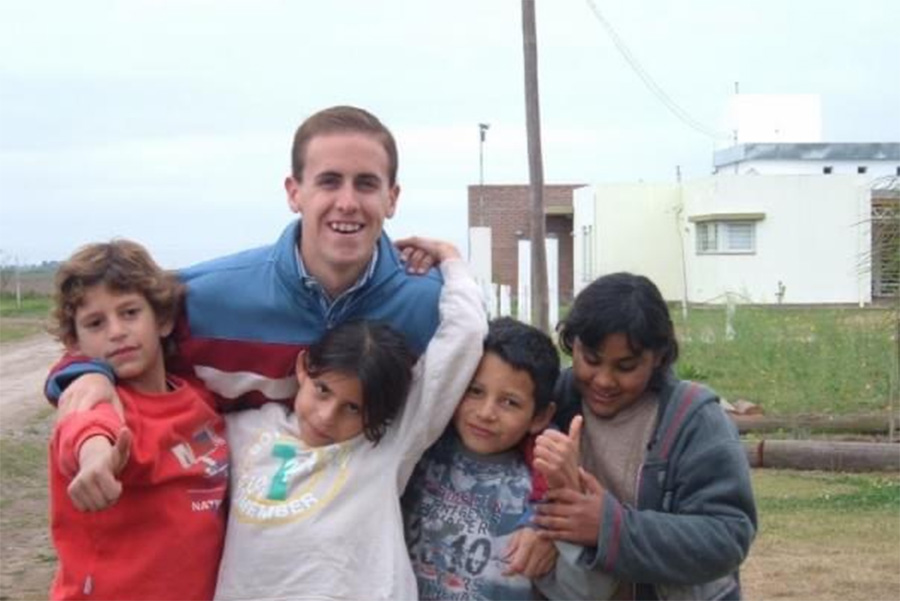
Answering the call to be ‘citizens of the world’
Norris attributes his passion for law studies to his undergraduate experience at Gettysburg. Together with his classmates, he confronted issues in the justice system through his First-Year Seminar about the U.S. Supreme Court, taught by Political Science Prof. Emeritus Ken Mott, who died in 2021.
“We lived in the same residence hall, Stine Hall. We would come back after class and keep the conversation and debates going,” said Norris, a political science major.
Through his coursework, like this seminar, and volunteering with the Center for Public Service, Norris recognized the responsibility of those working in the law to answer the call to be “citizens of the world”—“to think about other people, to think about other cultures, and to communicate with people,” he said.
After graduating from Gettysburg, Norris attended Oxford University on a Rhodes Scholarship, receiving his Master of Science degree in 2008. He went to Yale Law School, graduating with a J.D. in 2011. The economic instability resulting from the Great Recession of 2007 to 2009 provided a real-world environment for delving into the challenges and conflicts impacting the practice of law.
“I went to law school on the heels of the [2008] financial crisis and started focusing on courts, economic inequality, and questions of democracy, and they’re questions I thought about from when I began [my education] at Gettysburg,” he said.
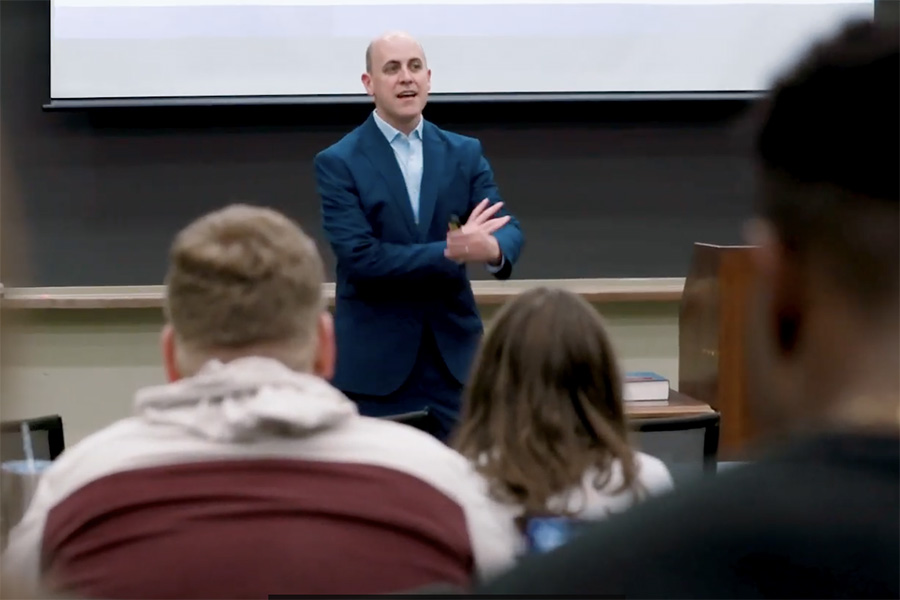
Pursuing the answers to these persistent questions about law and justice that he first wrestled with at Gettysburg continually motivates Norris. Each day in his classroom at Richmond Law, he encourages his students to confront and examine complex legal problems and view themselves as changemakers. With many of his law students preparing to become attorneys, Norris strives to motivate them in their work toward making the legal system and society a better place.
“Seeing students connect complicated legal issues to real-world events and to real-world stakes, and seeing them find their passion in the law, makes my job incredible,” he said.
“The liberal arts education at Gettysburg helped me see the world and its problems in more complex ways.”– Luke Norris ’06, associate professor of law, University of Richmond School of Law
Working with students in this way reflects his close collaborations with Gettysburg faculty, such as Political Science Chair Caroline Hartzell, Fielding Center Director and Political Science Prof. Emerita Shirley Anne Warshaw, and Political Science Prof. Bruce Anders Larson. With peers and faculty alike, Gettysburg taught Norris how to work with others, exercise empathy, and build emotional intelligence when solving problems within group settings in society—values that he now imparts to his students. This student-faculty mentorship he experienced at Gettysburg is something he strives to emulate today.
“My professors treated me like a full human being and cared about me. It really changed my life,” Norris said. “The liberal arts education at Gettysburg helped me see the world and its problems in much more complex ways. I learned to open my mind about the complexities of problems, [and] the role of law and politics and culture in not only creating problems but also in helping us to improve them. It taught me that problem solving is a collective endeavor.”
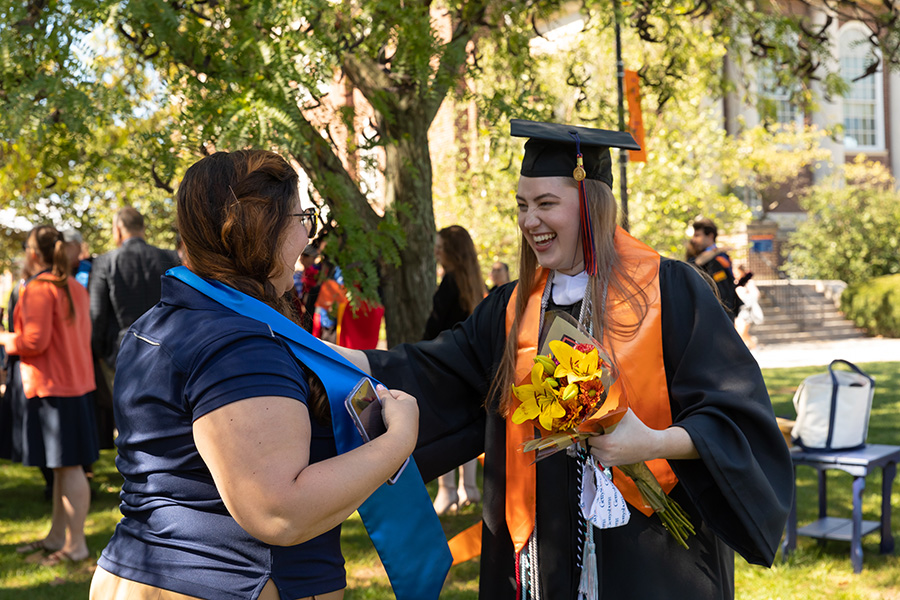
‘Work for people to help people’
Since middle school, Greenman dreamed about being a lawyer. When she was 13, she read a book about a community devastated by a mining accident and subsequent flood and the community’s journey of seeking compensation from the mining company.
“That was the first time I was exposed to a lawyer as something other than who I saw on TV—as someone who could make a difference in people’s lives,” she said.
Motivated by this mission of making a difference, Greenman, a history major, immersed herself in Gettysburg College’s opportunities to support impactful change. Her service on the Honor Commission and her work as a resident assistant for first-year students were formative experiences that placed her on her path to law school. Through these experiences, she gained leadership skills that taught her the importance of working with others to resolve conflict and foster communication.
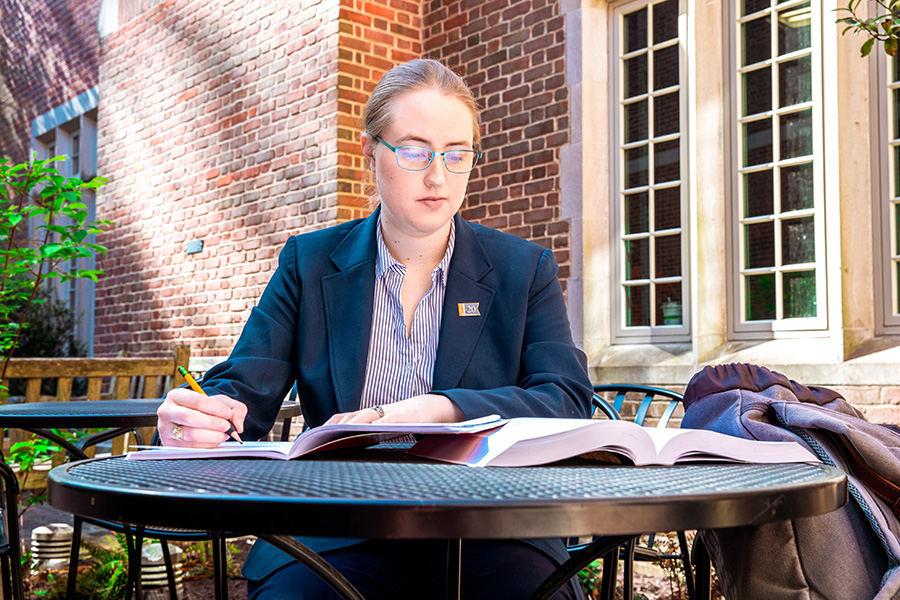
Upon graduating from Gettysburg, Greenman began graduate studies at Richmond Law, where she interned with the U.S. Navy JAG Corps and learned about litigation, the client-attorney relationship, and the operations of the U.S. Navy.
A Gettysburg Network connection with Army Lt. Gen. Flora D. Darpino ’83—vice chair of Gettysburg College’s Board of Trustees, who played a pivotal role in connecting Greenman with the world of law in the military—made these opportunities possible. In 2019, Greenman’s junior year, Darpino visited Gettysburg to share career insights into her path to becoming the 39th Judge Advocate General of the U.S. Army.
“I was so fortunate to hear from her as a fellow Gettysburgian and somebody who had been down a similar path that I was looking at,” said Greenman, who will begin work for the U.S. Navy JAG Corps now that she has completed her J.D. program and passed the bar exam.
“Studying the law, practicing the law, and using the law is all about finding those tools and making them work for you. How do you apply the rules to the facts in a way that works, in a way that serves your client, and in a way that serves the world?”– Jessica Greenman ’20, J.D. program graduate, University of Richmond School of Law
As she prepares to complete her J.D. program, Greenman said her desire to “work for people to help people” motivates her studies and service to the legal field. Problem solving, she said, is an indelible part of a legal professional’s work.
“Problem solving is all about using the tools you have to accomplish what you can,” she said. “Studying the law, practicing the law, and using the law is all about finding those tools and making them work for you. How do you apply the rules to the facts in a way that works, in a way that serves your client, and in a way that serves the world?”
For Greenman, serving the world involves practicing law justly and advising the next generation of lawyers.
“If you can maintain your sense of justice, maintain your sense of dedication to the people around you, of dedication to people who have rights [but] who often can’t use them without the help of somebody who has this very specific training, then that is what makes a great lawyer.”
Looking back upon their liberal arts education at Gettysburg College, Norris and Greenman believe that the power of Gettysburg’s people, place, and approach has broadened their worldview and continues to challenge them in their personal lives and professional careers.
By Michael Vyskocil
Video by Abbey Frisco
Photos by Abbey Frisco and Shawna Sherrell
Posted: 10/20/23


